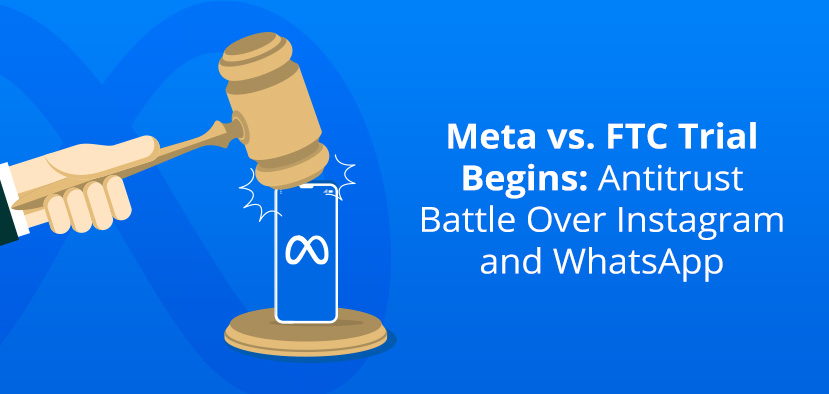Meta vs. FTC Trial Begins: Antitrust Battle Over Instagram and WhatsApp
April 14, 2025
1 min 41 sec read
Meta's legal rollercoaster is hitting a new peak this week as
the company heads back to court to face the Federal Trade Commission's (FTC) long-running antitrust case. The FTC is still gunning to force Meta to sell off both Instagram and WhatsApp, arguing that Mark Zuckerberg's company acquired them not to innovate, but to wipe out the competition. The case officially kicks off in a federal court this week—one of the biggest legal showdowns the tech giant has faced so far.

So, what's this all about? Back in 2020, the FTC first sued Meta (then still Facebook), claiming the company had built and maintained its social networking dominance by gobbling up potential rivals. According to the FTC, Meta's 2012 purchase of Instagram and its 2014 deal to acquire WhatsApp weren't about making great products even better—they were about blocking emerging threats before they could become real competition. The solution? Break up the empire. Undo the deals. Make Meta divest.
But the path to court hasn't exactly been smooth. In 2021, a judge tossed out the original complaint, saying the FTC failed to prove that Facebook actually had monopoly power. Not to be deterred, the FTC returned with an updated lawsuit, and in 2022, it was given the green light to move forward. Since then, it's been back-and-forth motions, Meta trying to shut it down, and now—finally—a trial.
Meta's defense? It's pulling no punches. The company claims the FTC's case just doesn't hold up in the real world. In Meta's view, there's no monopoly here. People are spending more time on TikTok and YouTube than on Facebook or Instagram, and newer platforms keep rising—proof, they argue, that there's still plenty of competition out there. If Meta really had the power the FTC claims, TikTok wouldn't have blown up like it has.
And here's where it gets political. It seems Zuckerberg's cozying up to the Trump camp—buying a D.C. mansion and all—wasn't the power move he thought it might be. The hope? That the Trump Administration would quietly squash the trial before it got this far. But nope. The FTC is pressing ahead, and Meta's standing alone in court.
That silence from Trump might not be permanent, though. If Meta loses, it could trigger a new chapter in its relationship with Trump, one where Zuck has to offer something a little juicier in return for protection. Trump's always loved a good deal, after all.
Want to read this in Spanish?
Spanish Version >>
